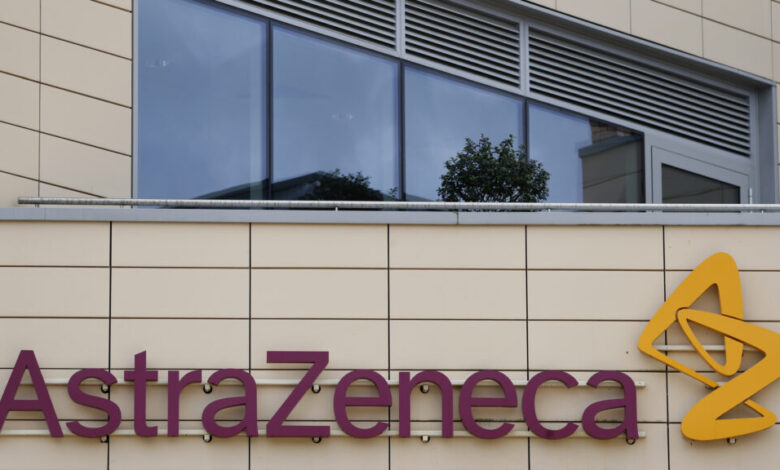Readout Newsletter: Enhertu, AstraZeneca, Agios, GSK

Want to stay on top of the science and politics driving biotech today? Sign up to get our biotech newsletter in your inbox.
Good morning! It’s an ASCO-full newsletter today (and be sure to peruse the More Reads for more reads) but there’s so much more this week. We’re previewing tomorrow’s advisory committee on the closely watched MDMA therapy from Lykos Therapeutics, and both Jonathan Wosen and I will be at BIO! Hope to see you there.
The need-to-know this morning
- Agios Pharmaceuticals said its drug called mitapivat reduced the need for blood transfusions in patients with a severe form of beta-thalassemia, an inherited blood disorder. The results achieved the primary goal of a placebo-controlled Phase 3 clinical trial, and if the drug is eventually cleared by regulators, could accelerate sales.
- Structure Therapeutics reported that its oral GLP-1 drug led to weight loss in two studies, leading shares to surge in pre-market trading.
- Arrowhead Pharmaceuticals reported positive results from a Phase 3 study of its RNAi-based therapy for familial chylomicronemia syndrome, an ultra-rare disorder that causes high levels of triglycerides.
What to expect from the MDMA advisory committee
Later this summer, the FDA will decide whether or not to approve MDMA as a therapy for PTSD. It’s a tremendous step for validating psychedelic drugs as therapies, but it’s one being weighed with extreme caution. On Tuesday, a panel of independent scientific advisers will review data on MDMA’s safety and efficacy, and share their feedback with regulators. STAT’s Olivia Goldhill outlines the key issues you should look out for in this high-profile ad comm.
One issue the panelists may flag is expectancy bias: Even though the MDMA studies under review are double-blinded, it’s hard to pretend a substance is a psychedelic when it’s not — and that knowledge likely impacts how a patient responds to a therapy. There are certain safety issues and data suppression concerns to consider, and looming questions around how the FDA will regulate therapy.
But there hasn’t been a new treatment for PTSD in more than two decades — and many are clamoring for new, effective interventions for this critical mental health issue.
Can AstraZeneca make good on its promise?
AstraZeneca has dominated the annual meeting of the American Society of Clinical Oncology. And it’s hardly the first time.
In fact, 2024 marks the sixth year in a row that the London-based drug giant has had a presentation in the ASCO plenary, the conference’s biggest showcase for new data. This year, the company has two.
But as STAT’s Matthew Herper notes, while scientific credibility is great, shareholders want something else: return on investment. That’s what CEO Pascal Soriot recently promised, when he said that in a mere six years the company would increase its annual sales to $80 billion.
Matt, reporting from the conference, takes a closer look today at AstraZeneca and its pipeline. Read more.
Enhertu could change treatment standards for some breast cancers
The blockbuster cancer drug Enhertu delayed tumor growth for more than a year in women with a common form of metastatic breast cancer, new data presented at ASCO show. It was significantly more potent than chemotherapy, prompting makers Daiichi Sankyo and AstraZeneca to assert that if it’s cleared by regulators, this might become the new standard of care for patients expressing even the faintest amount of HER2 protein, STAT’s Adam Feuerstein writes.
“It’s not an overestimation to say that trastuzumab deruxtecan is the most potent drug ever developed for breast cancer,” a Dana-Farber Cancer Institute medical oncologist told STAT. “It does come with side effects that we’re learning to manage, but with that said, I’ve never seen data like what’s being reported here.”
Corbus ADC outperforms Pfizer’s ADC
CRB-701, an antibody-drug conjugate made by Corbus Pharmaceuticals, worked better in bladder cancer than Pacdev, a similar drug that Pfizer acquired as part of its $43 billion Seagen deal. This underscores, perhaps, why Corbus is currently the second best-performing biotech stock this year, STAT’s Adam Feuerstein writes. At Friday’s close of $42.80, the company’s stock price had risen 609% this year — second only to Elevation Oncology, which is also developing antibody-drug conjugates.
At ASCO, Corbus showed that its ADC had an overall response rate of 28% from 25 evaluable patients. In a subset of 15 patients, the overall response rate was 40%.
GSK blood cancer drug Blenrep has a chance to reenter the market
Less than two years ago, GSK pulled its blood cancer drug Blenrep from the market. But now there’s chance for resurrection: In multiple myeloma, Blenrep outperformed standard therapies when combined with another medicine, Pomalyst. This is the second positive study of late for Blenrep, which could signal a return to the FDA for a re-approval. There was a complete response rate of 40% for patients who received Blenrep, versus 16% in the control group, data presented at ASCO show.
That said, physicians have other tools in their arsenal that might be challenging for Blenrep sales, STAT’s Andrew Joseph writes — outside of its spotty history of efficacy before it was pulled from the market.
More reads
- Intellia’s CRISPR-based treatment dramatically reduced patients’ swelling attacks in small trial, STAT
- AstraZeneca’s Tagrisso greatly slows cancer for some people with stage 3 lung cancer, STAT
- Jazz shares ‘unprecedented’ HER2 biliary tract cancer data ahead of FDA decision, Fierce Biotech
- FDA oncology head wants clinical trials to range beyond China alone, STAT



